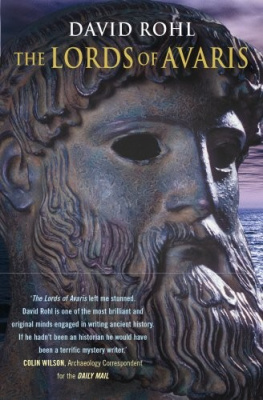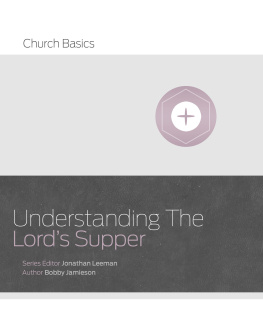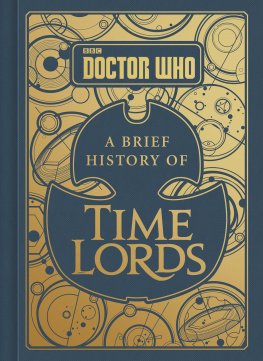Contents
Part One
The Lords of Chaos
Part Two
Divine Pelasgians
Part Three
The Coming of the Greeks
Part Four
The Great Migration
Part Five
Reference Section
About the Book
From Joshuas Jericho to Romulus Rome, the true chronicle of our pre-Christian past is uncovered layer by layer, inscription by inscription and artefact by artefact to reveal an extraordinary historical picture.
There really was an Heroic Age of brazen-clad warriors, the last of which fought before the walls of Troy, just as described in Homers Iliad. However, the fall of Troy is one of the last chapters in this epic story of our ancestors.
Two thousand years before the assassination of Julius Caesar in the Roman Senate new people appeared on the stage of history to join the great civilisations of Mesopotamia and Egypt. They had many legendary names the Divine Pelasgians of Greece, the Luwians of Troy and western Anatolia, the Rephaim and Anakim of the Bible, and the Hyksos rulers of Avaris who suppressed Egypt for generations. Their heroes and heroines are legionary: Inachus mythical king of Argos; the beautiful Princess Io who married an Egyptian pharaoh; Danaus the Hyksos ruler who, fleeing from Egypt, triggered the Heroic Age of Greece; Minos the high-king of Knossos who built the infamous Labyrinth; Mopsus warrior and sage who led a vast army in a daring attempt to seize Egypt in the time of Ramesses III. All these, and more, are the stuff of legend but The Lords of Avaris reveals these classical heroes as flesh-and-blood characters from our ancestral past.
About the Author
DAVID ROHL is the author of three best-selling books: A Test of Time: The Bible From Myth to History (also published in the USA as Pharaohs and Kings); Legend: The Genesis of Civilisation; and The Lost Testament: From Eden to Exile A 5,000-year History of the People of the Bible. These volumes have been published in nine different languages. David also presented the internationally acclaimed three-part television series Pharaohs and Kings and the one-hour documentary In Search of Eden. He is currently completing another archaeological series entitled The Egyptian Genesis dealing with the origins of Egyptian civilisation.
David is Director of the Eastern Desert Survey, which is responsible for recording the rock-art of Egypts desert mountains between the Nile Valley and Red Sea. He is the organiser of Legend Conferences in the UK and Egypt, as well as giving lectures himself all around the world.
Also by David Rohl:
A Test of Time: The Bible From Myth to History
Legend: The Genesis of Civilisation
From Eden to Exile: A 5,000-year History of the People of the Bible
The
Lords of Avaris
Uncovering the Legendary
Origins of Western Civilisation
David M. Rohl
To the future:
Mohan
Iain
Vanessa
Rebecca
Robert
Maya
PREFACE
THE MORNING OF 27 April 1991 began with a typical grey sky hanging over central London as I headed through the streets of Bloomsbury towards the equally grey Ionic splendour which is the British Museum. I was already late for the ISIS 1991 Fellowship Lecture as I headed up the steps of the portico and through the doors into the atrium of that august institution. A sharp left turn quickly took me to the Egyptian sculpture gallery and another left turn by the Rosetta Stone led to the corridors of ORTHOSTATS from the palace of King A SHURBANIPAL of Assyria, decorated with masterful reliefs of his famous lion hunt (above). At the end of the exhibit from the state apartments of Nineveh you come to the rear ends of a pair of giant cherubim winged bulls with human heads guarding the Assyrian collection of the museum. At this point to the right is the Egyptian Sculpture Gallery and, through a door on the left, a large room containing the faade of the elegant Classical temple-tomb (built between 390 and 380 BC) known as the Nereid Monument, discovered by Charles F ELLOWS in the 1840s whilst exploring the ruined city of Xanthus in Lycia (south-west Anatolia). Beyond here you will find the notorious Elgin Marbles, removed from the Parthenon in Athens by Lord Elgin between 1801 and 1806.
But I was not going Greek today. My destination was down an unobtrusive stairway, beneath the stern gaze of the cherubim, which led to the basement lecture theatre of the British Museum. I could hear the muffled buzz of excitement beyond the closed double doors as I approached.
Things were just about to get under way as I slipped apologetically into my seat with just enough time to acknowledge the nods and waves of my teachers and academic colleagues. You see, I was a postgraduate student at University College London at the time and fortunate enough to have been under the tutelage of some of the greatest ancient world scholars of the late twentieth century. I sat next to Peter Parr, the excavator of K ADESH-ON-THE - O RONTES . Peter had taught me Levantine archaeology at the Institute of Archaeology, London, and had the good grace to invite me to participate in his excavations in Syria. Next to him was Professor Nicholas Coldstream, the leading authority on G EOMETRIC G REECE . The row in front was crammed with my tutors and honorary research fellows from the Department of Ancient History; next to them my Egyptology professors the much-loved Harry Smith and Geoffrey Martin. This galaxy of stars from the academic world was here for one reason: to hear the lecture of a remarkable man a scholar whom I had recourse to introduce, at some length, in A Test of Time, Volume One, when writing about the archaeological evidence for the Israelites in Egypt.
The Man from Avaris
Professor Manfred Bietak, the Director of the Institute for Egyptology in Vienna and Field Director of the Austrian mission to T ELL ED - D ABA in Egypt, is a hero to many an aspiring young Egyptologist and archaeologist including myself. He has excavated in Egypt, year in year out, for the best part of half a century, steadily (and sometimes sensationally) revealing Egypts greatest discovery since the days of Howard Carter and the tomb of Tutankhamun. With the help of his international team of experts (including archaeologists, surveyors, anthropologists, architects and restorers) Bietak has brought one of Egyptian civilisations darkest and most mysterious eras into the bright daylight of modern scientific endeavour. Thanks to Professor Bietak, the Second Intermediate Period encompassing the 13th Dynasty and the Hyksos Age is now a hot topic of debate within academia and has become a fascinating aspect of Egyptian history for study amongst both students and amateur Egyptologists alike.
As Director of ISIS (the Institute for the Study of Interdisciplinary Sciences), I had invited Professor Bietak to give the 1991 ISIS Fellowship Lecture at the British Museum so that a British scholarly audience could hear about the latest discoveries at Tell ed-Daba a little village which marks the location of ancient Avaris, capital of the Hyksos empire. Manfred Bietak had not spoken in the UK since his British Academy lecture way back in 1969 and so this was a bit of a coup on my part. He had, in fact, flown directly from the Austrian Institute headquarters in Cairo having departed from the site of Avaris the day before, where he had left his team of site supervisors hard at work at a new excavation site just a kilometre to the west of the main ruin-mound at Tell ed-Daba. Now he was standing before a large expectant crowd in the basement lecture theatre of the BM and nobody in the audience had any inkling of what he was about to reveal.
Next page











